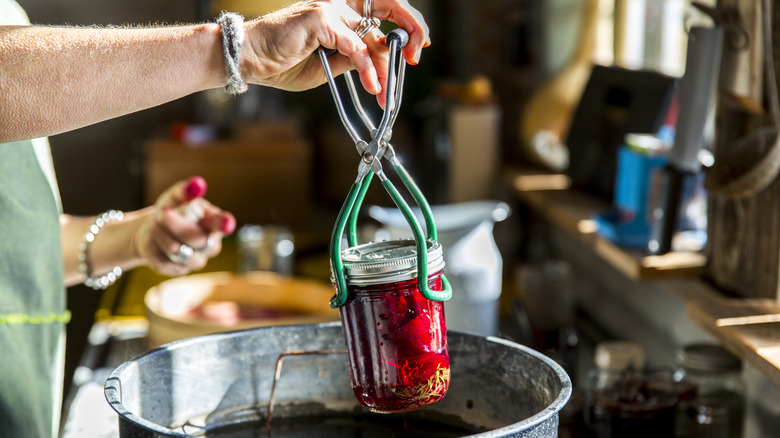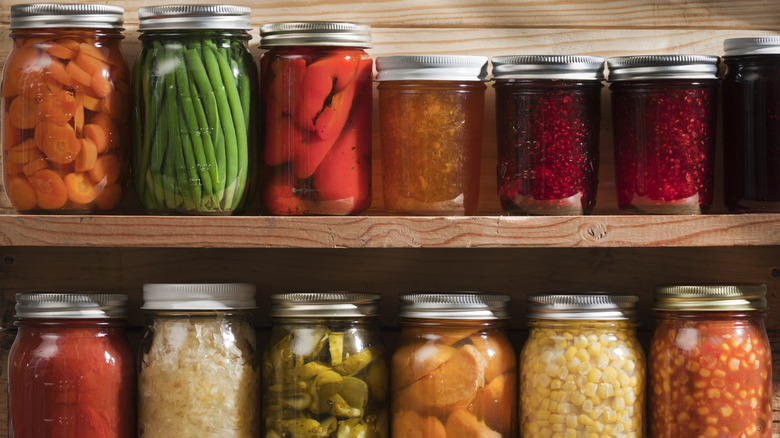The Early Mistake To Avoid When Canning Your Own Food
Canning is an ancient method of preserving and storing food, with roots dating back to the dawn of the 19th century. Today, canning at home is widely accessible as people look for ways to control the ingredients in their food, prolong seasonal produce, and even stretch a dollar. But among all of the benefits of canning, safety is paramount for both the water bath and pressure methods. Jars that have been improperly sealed can grow dangerous strains of bacteria, potentially leading to botulism — a rare but life-threatening illness that requires immediate medical attention. One of the earliest mistakes you can make when canning is not checking your jars for cracks before you process them.
This is especially important if your jars have been reused a few times, exposing them to wear. As you prepare your kitchen for canning, run your finger around the lip of each jar and feel for any chips or imperfections in the glass. If you find one, it's time to retire that jar; it will not seal properly. The same is true for hairline cracks. Not only will these jars not seal, but they could shatter in the canner, leaving you with a hazardous mess to clean up. There are several reasons a jar might not seal correctly — an off-center lid, improper processing, and not enough headroom, to name a few — but checking for cracks early on is a simple way to save yourself from a potential headache.
Canning jars have a shelf life
You may not realize it, but canning jars tend to have a life expectancy of around 10 years. With regular reuse, the glass is repeatedly exposed to high heat and/or pressure, which can compromise its integrity over time. Of course, your jars can last much longer than this if they're handled delicately or used sparingly. But after this timeframe, you may want to do a careful inspection. This is also why it may not be ideal to can food with that vintage set of mason jars you picked up at the thrift store or inherited from Grandma.
If you've started canning and you're left with a jar full of food that didn't seal, you still might be able to salvage it. As long as you catch the unsealed jar within 24 hours, the food can be safely recanned. Be sure to check the lid and replace the jar if necessary. Luckily, if you do need to retire a compromised canning jar, a simple internet search can lead to a wealth of clever craft and DIY ideas for everything from vases to candle holders to desk organizers.

